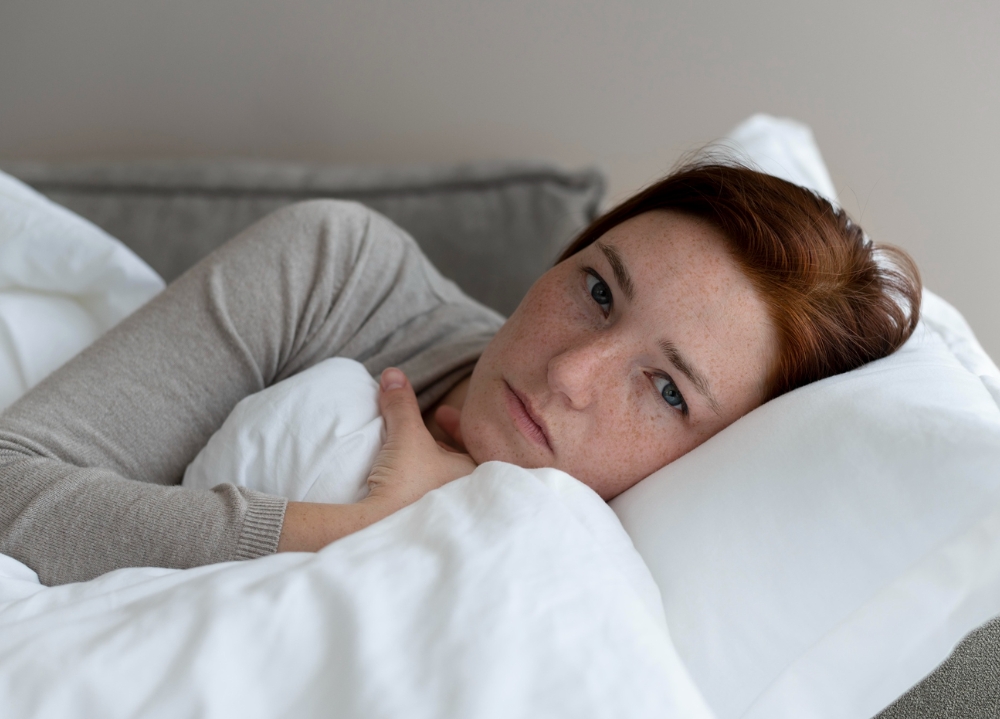Insomnia

What is Insomnia?
Insomnia occurs when an individual finds difficulty sleeping normally, fails to sleep on time, or experiences non-restorative sleep.
Sleeping irregularly can affect the overall mental well-being of an individual and cause problems in doing daily life activities, mood swings, frustration, and overall well-being.
Insomnia symptoms might last for a long time or even get severe if not treated properly. The main reasons leading to insomnia include fatigue, stress, anxiety, irregular sleeping patterns, or any other medical factors. These causes must be addressed to minimize the insomnia symptoms.


Common Symptoms of Insomnia
Insomnia is a major health condition that causes disturbances in daily life and impacts mental well-being. It is a sleep disorder that shows different signs and symptoms of irregular sleep and affects the mental health of the patient.
Here are some common insomnia symptoms that anyone can experience, and talk to a doctor who specializes in insomnia for treatments to help you recover quickly.
Irregular Sleep Patterns
Insomnia symptoms occur when an individual is unable to sleep on time after going to bed, causing irregular sleep patterns. These symptoms are often caused by stress, anxiety, or depressing thoughts at night.
Frequent Awakenings at Night
When people wake up multiple times throughout the night, difficulty getting deep sleep is one of the insomnia symptoms.
Early Rise
Insomnia symptoms also include waking up earlier than the required sleep time, impacting physical health, and keeping the person restless for the whole day.
Non-Restorative Sleep
Insomnia symptoms may also occur when you wake up tired and unenergetic, even after getting your desired sleep. It affects when you don’t get quality sleep at night.
Fatigue and Drowsiness
When you don’t get deep sleep and quality sleep during the night, it can lead to fatigue, drowsiness, and a lack of focus and attention during work.
Emotional Instability
Insomnia might affect the way someone feels. It can cause sudden mood changes that are more negative, like anger, sadness, frustration, or even irritability.
Intellectual Impairments
A sleep-deprived person might not be able to think properly like others around him. His mental capacity to learn or memorize things, to focus or judge, and to make a decision gets limited and declines with time.
Body Indications
In addition to mental health, insomnia also affects a person’s physical health. It may include frequent yawning, headaches, contracted muscles, stomach issues, etc.

Insomnia Treatment
Mostly, personalized care and insomnia treatments are provided to bring back peaceful night sleep for patients. Some insomnia healthcare providers create effective methods, including insomnia therapy, in addition to medications or through managing life and sleeping routines. Every possible insomnia treatment is conducted for patients through all these methods and therapies to improve the quality of sleep and mental well-being. These are:
Cognitive Behavioral Therapy
Cognitive behavioral therapy for insomnia is an effective way of treating this disorder. This therapy helps in evaluating the thought process and filtering out negative thoughts that don’t let you sleep at night. After identifying the causes, simple sleep therapies, relaxation techniques, and cognitive restructuring are provided.
Sleep Hygiene
Quality sleep is necessary to have a balanced & healthy life. Most doctors for insomnia prepare personalized sleeping schedules and bedtime routines that help in achieving the required sleeping patterns. In addition, some suggestions are provided to create a better environment for sleeping.
Relaxation Techniques
To achieve a healthy sleeping routine, both the body & mind must be relaxed. Some doctors offer different techniques as per the actual condition of each individual. These techniques include certain breathing exercises, meditation, or even muscle relaxation exercises. Practicing these may relax your mind and calm the body, and it becomes easier to sleep peacefully.
Medication
Long-term medication is not recommended to treat Insomnia. In case of critical situations only, medication might be used as a short-term therapy. These medicines involve the risks of addiction & have certain side effects, hence specialized insomnia medication management is necessary.

Benefits of Insomnia Treatment
Getting help from a doctor who specializes in insomnia not only offers a detailed diagnosis but also a complete customized plan to get insomnia disorders treated.
Most treatment includes a combination of all necessary insomnia therapies and remedies to get back to quality sleep and improve mental well-being.
Some healthcare providers combine the necessary medication with therapy sessions and also provide a plan to monitor and develop better sleep habits. These techniques combined will improve the sleep patterns that will result in a better mood, focus, positive energy, and overall life.